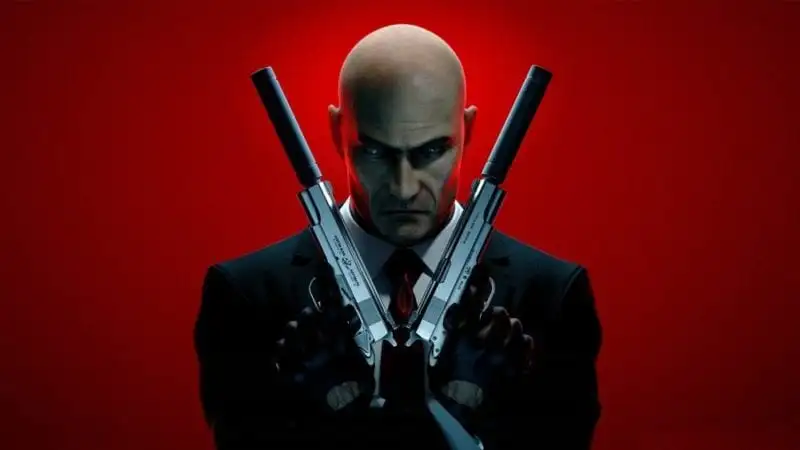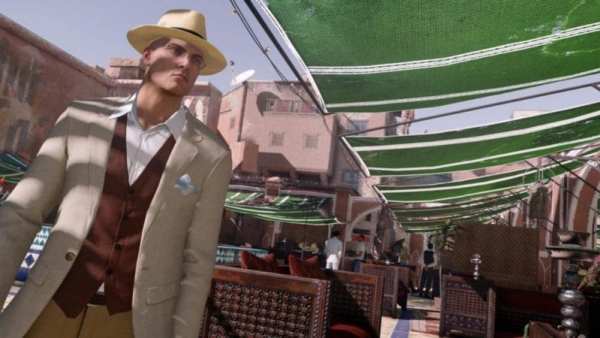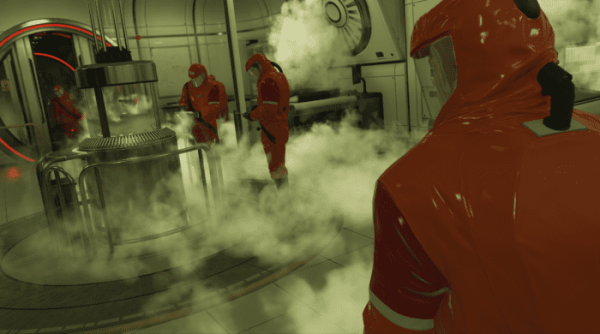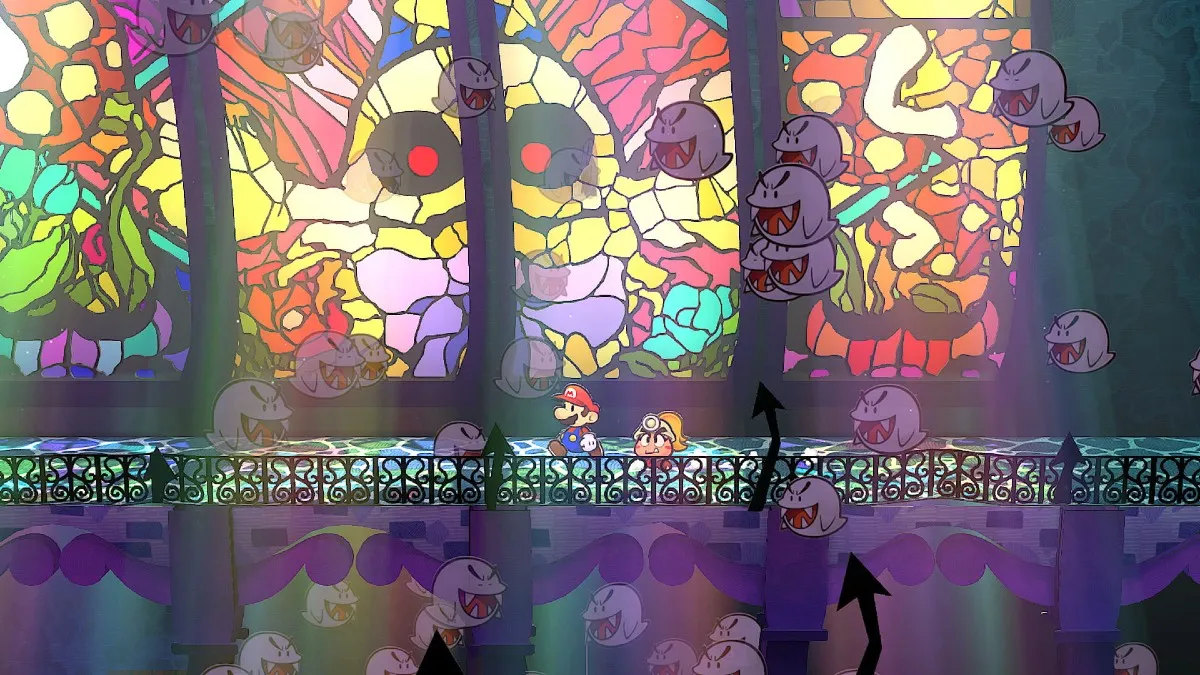With the finale of Hitman’s first season on the way, we had the opportunity to sit down with the game’s lead writer, Michael Vogt, and PR manager, Sven Liebold, to ask them about Hitman’s journey, their thoughts on the episodic accomplishment, and what the future may hold for one Agent 47.
Twinfinite: So what do you have for us today?
Vogt: Well, I thought I’d tell you about the overall vision for the game. So basically what we set out to do was reimagine Hitman as this contemporary spy formula, and we wanted to set it in a universe with characters that you actually care about, and set it with a more mature and intelligent tone.
And as you know, we went the episodic route and we wanted to go with a really ambitious episodic storyline that spans multiple seasons, and at the same time build up a large main cast of characters because – you know – in the old games the targets were the star characters, but they were so short lived because you’d just go and kill them and move onto the next. So we wanted to build up a larger main cast for the game that would last for the entire storyline.
But at the same time, the storyline doesn’t evolve like a traditional AAA narrative, in that we kinda launched it under the radar, and that all of the major talking points for season one weren’t going to be the story. It was going to be the episodic route and why that’s a good idea, the Elusive Targets and the sandbox gameplay and all this new stuff. We really just kind of launched it under the radar and we didn’t really tell people what it was about or what to expect, how long it is or anything like that. We just let people kinda latch on as it progresses.
We also built it in a way where, for most of Season 1, the story is kind of a subtle background presence. You can feel that it’s connected to each mission, and you have these cutscenes at the end of each mission, but it’s kind of a test because we wanted players to just experience what it feels like to be Agent 47 without necessarily taking an active part in the storyline. So, for like the first half of the season it feels like his usual. You go to America, you stop a coup d’état, killed a couple of guys. But for Agent 47, that’s just a Tuesday. That’s just his life, and we wanted players to feel what it’s like to be Agent 47, and then slowly the story will kind of merge with the gameplay and step into the foreground a little bit more.
And that’s the reason why in the penultimate episode of Season 1, the current release, where it’s like the missions and the gameplay and the story have become fully integrated, you’re playing the main story in a more traditional sense, like normal games. So that’s why we added it in; with the final episode coming up, it just blows the story wide open. And the way we see it was, Season 1 is like act one in a film, right? It’s an introduction phase, really. We’re introducing all the characters, and a mystery and dilemma and conflict, but the story itself is only just beginning.
I do have a few questions on the series as a whole. One thing I noticed when this Hitman season came out, and it was revealed to be episodic, people were a little hesitant. That’s not the Hitman we’re used to. But now we’re five episodes in and people love it. How does that feel? Is it vindication?
Vogt: It feels great. We always felt like it was a good idea obviously, and there’s a bunch of reasons for doing it creatively. From the story perspective, it provides a larger timeframe. We can go a little bit slower and evolve characters over time and don’t have to rush it. And since Hitman is all about replay, we all have this in-built forward motion thing, where we’re used to games where we always progress and you beat a task and you go onto the next one. But that doesn’t really work with Hitman.
Replay is fun, but in Hitman, replay is necessary if you want to get more bang for your buck. You play a mission and you complete it once, then maybe you’ve uncovered 5% of content in that mission. You need to play it like 10 or 20 times, and then you get a sense of what’s actually going on – to experience all the cool ways of killing your target, to get all the sub plots, and all the back stories and the connections to the story.
All that stuff is kind of in there, right? And going the episodic route, we kind of forced the players to explore these locations a bit more than if we gave them the whole package up front, because there’s nowhere to progress. I think players have actually realized how deep the game is because it’s episodic.
Was that ever considered a daunting task? Like you guys had this plan and it’s working wonderfully, but was it ever considered, ‘maybe we’re not doing or giving them enough to hold them over?’
Liebold: Definitely. I mean, that’s why all our episodes are so crazy. There is so much stuff you can do, like Michael has just used that awesome analogy where he explains that if you play in a traditional way, that you rush through it and complete one mission and go to the next, then you would miss out on 95%. It’s like ordering a big stein of the best beer you can get, and just having one sip and leaving the rest.
To answer your question, it’s not just the episodic thing. I think quite a lot of people were skeptical of the game because there are other episodic games out there where players have to wait like five to six months until the next episode comes out, and that was something we wanted to avoid. We wanted to have a steady monthly rhythm, but then again we have free content that’s out there every week – the Elusive Targets and contracts. So it’s a pretty impressive package when you think about it.
It’s funny that you mention the Elusive Targets because they have probably been my favorite thing, these weekly targets that you have for two or three days. You have one shot, and if you mess up, then you’re the worst Agent 47 to have ever lived. But how was it building those? How was it balancing that so it was challenging for those who wanted that challenge, but also fair when they didn’t succeed, killed the wrong target, blew up the wrong building or whatever?
Vogt: It kind of has to be merciless, that’s the whole point of the challenges.
Liebold: At the bottom of it was really about bringing this Hitman fantasy across, and I think the Elusive Target is like the pure form of assassin gameplay. That’s something we wanted to achieve, so yes you’re in this location and you only have one shot, you can’t replay it, you know they’re gone if you do screw it up – and from that idea we started to develop Elusive Targets and mix them up in different ways.
I don’t know if you played the one where you have to take out twins, but only one of them. These are the more evil ones, right? Like you can only tell them apart by like, only one is having a watch and stuff like that. And that’s really interesting, because we can spawn these really, really cool stories within the actual episode. They’re not actually attached to the story. It’s almost like a parallel universe as they’re almost superimposed on the story. Agent 47 can’t do two things at once, so that’s why they’re not connected to the storyline. It’s just a different load.
It’s also interesting because we can mix up the actual level design as well. Like in Paris, where, urghh what’s his name… Well let’s say Cardinal in La Sapienza, where he’s in the church and suddenly there’s like 30 bodyguards around there – so you can have these little set pieces in the world, and that’s something we’re able to do with the Elusive Targets.






